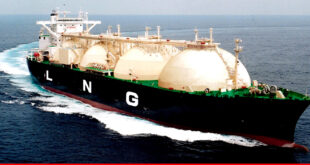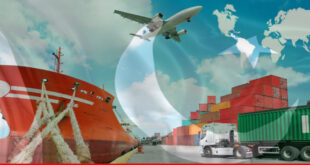Pakistan has witnessed progress since independence when it comes to development of infrastructure and industries. Pakistan is recognized as a major textile exporter. Being an agrarian economy, the country is self-sufficient when it comes to food requirement, which is a plus factor. Through progress is seen with setting up of industries, infrastructure, commercial and residential properties, corruption and mis-management has made the progress slow. Political unrest and blame game has shifted focus from the country to political rift. The lack of focus on the country by leaders has resulted in frustration, poor law and order situation and no control mechanism to rectify issues faced by people on day to day basis. Street crime is what affects everyone. Recent initiative against the Taliban by Pakistan Army has significantly reduced the number of bomb attacks witnessed in the past. With Karachi being major hub for business and finance, people from all walks of life come to Karachi for jobs and career. These results in social interaction among different ethnic groups who fail to co-exist in peace and harmony. Fragmentation among people creates unrest and sectarian violence.
Pakistan is seen as a terrorist state with negativity on the news, both locally and internationally. It is unfortunate that the message of Islam to promote peace is not found. Police and other law enforcement agencies can only do so much to control population of 180 million people. Coercion to amend decisions and poor adherence to laws has put the country in turmoil.
When it comes to health, government-run hospitals are in poor state. There have been strikes by doctors over compensation, which has caused deaths as medical issues went un-attended. According to ADB, the middle class of Pakistan is expected to be 40 percent of the population. Government-run schools to follow the same principles with which hospitals are managed. The curriculum in schools and colleges has not been revised in more than four decades and has not been brought at par with international standards e.g. Cambridge. It is because of poor education forcing children to take up jobs to support family and in result literacy in Pakistan is low. Though it is said that literacy rate is around 60 percent, it is expected that literacy could be half of this number.
When it comes to the economic situation of the country, KSE is seen as the best performing stock market in the world. There are 42 banks and many insurance, mutual fund, DFIs and NBFIs, which shows the strength of the finance system. Returns in Pakistan are one of the highest in Asia where risk free treasury securities offer 9.9 percent. HEC has proposed higher education and Phd’s have been on a rise. Pakistan is recognized for its textile exports, agricultural output, residential and commercial construction, influx of restaurants and vibrant life. With high population, FMCG sector is posting double digit growth. The current economic situation is such where business men are content and businesses in general are showing positive growth.
One such indicator, which has affected everyone, is inflation, pushing the middle class below the poverty line. Inflation is driven mostly through supply side and is pushed through oil and gas prices, poor price management, utility prices increasing cost of living and doing business. Poor allocation of gas supply along with load shedding has resulted in loss of production. Poor tax collection and corruption has resulted in nation’s wealth being concentrated in few hands. The government as a result has resorted to borrowing from the central bank and the IMF. Devaluation in the exchange rate in an economy, which is a net importer, has increased inflation over the years. It is said that any economy, which has a high population base cannot have slow growth. GDP of the country could be higher than existing at the back of high control of inflation breaking back of the poor.
We have seen progress of Dubai, Singapore, Malaysia, China much after the existence of Pakistan. Dubai that we see today was the vision created more than two decades in the past to make the city a power house to attract tourists.
The problems with Pakistan include politicians and leadership. Politicians lack the authority to make strategic decisions and spend most of their time in needless arguments. There is little to no effort to jointly sit and make strategic choices about the economy. The incompetence of the leadership has made Pakistan a weak state. Efforts for social cause are driven by NGOs than the government.
Media both local and international show a negative image of Pakistan. The negative news we witness often is the only headline. We are also witnessing uproar from political parties against the existing government over their incompetence and rigging of the elections. Since history, the country lacks politicians who would put Pakistan on positive road map. Why has progress in Dubai outpaced Pakistan just in over two decades? Why do tourists travel to Malaysia and Singapore? The lack of focus by our politicians has pushed the country back in time. Those finding opportunity to go abroad are doing so as last option to find better living standards. A major difference for those who leave Pakistan for another country is the sense of safety and security for their family.
It is difficult to remain positive as people can only hope for the best. The situation in Pakistan requires 360 degree change and a complete paradigm shift to make the country better. It requires improvement in all elements, which starts from top leadership. It is said that for a country to strive, adherence to law must be paramount. Simply following laws of the country could make major change. Corruption is deep routed in the system, which may not be eradicated anytime soon. Economic progress of Pakistan could improve, what one can do is hope. We have seen political parties revolt against the existing government. One can only hope no matter who democracy nominates to lead the country, economic progression as seen in Western countries should be followed.
 PAGE Blog Business Weekly Magazine
PAGE Blog Business Weekly Magazine

